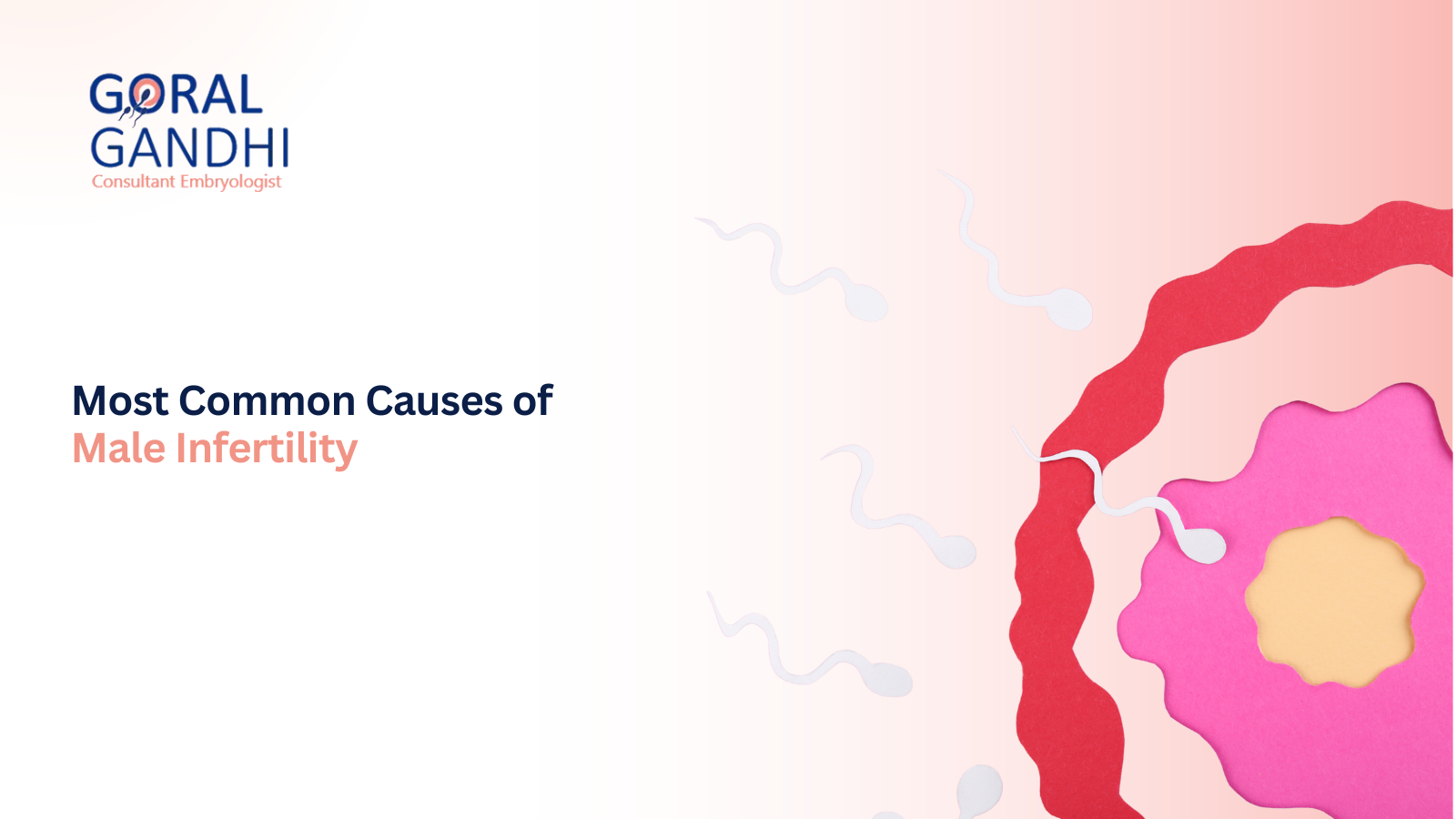

E-Brochure - Download Now!


Infertility is a very personal challenge for many couples across the globe. A study revealed that 15% of couples worldwide, and more than 48.5 million couples, experience infertility. In these couples, males are solely to blame in 20-30% of cases and contribute to 50% of cases in total. However, the frequency of male infertility remains undiagnosed, putting off the possibility of effective treatment. Continue reading to discover common causes of male infertility, identify areas that contribute to this condition, and learn how to combat and manage it.
Male infertility refers to a man’s inability to contribute to conception, often due to issues with sperm production, function, or delivery. Diagnosing male infertility typically involves a combination of the following:
Half of all infertility cases are actually male, but due to poor knowledge and stigma in society, no action is taken on this issue. Early diagnosis can not only improve fertility outcomes but also unmask other underlying health conditions requiring attention.
Understanding the root causes of male infertility is the very first step toward effective diagnosis and treatment. While infertility can stem from a variety of factors, identifying these causes early on can help guide the right interventions and improve the chances of conception. Let’s explore the most common contributors to male infertility.
Certain genetic conditions can affect sperm production and function:
Unhealthy lifestyle choices significantly affect male fertility:
Several medical issues are directly linked to infertility in men:
Exposure to certain environmental factors can harm sperm quality:
Addressing male infertility often requires a combination of lifestyle changes, medical intervention, and advanced treatments. Here are some steps that can help:
When lifestyle changes alone are not enough, medical interventions can be highly effective:
Routine check-ups are crucial for early detection of conditions like varicocele, infections, or hormonal imbalances that can impact fertility. Consulting a fertility specialist ensures timely and effective management of underlying issues.
Male infertility is a complex but manageable condition that affects many numbers of couples worldwide. Knowing the most common causes of male infertility from genetic contributions to lifestyle choices empowers men with the knowledge required to take proactive steps toward improving their reproductive health. It means that diagnosis early combined with appropriate ICSI treatment and healthy lifestyle adjustments can improve the likelihood of getting pregnant significantly.
Are you or your partner facing challenges with infertility? Male infertility can be overwhelming, but the right guidance can make all the difference. Goral Gandhi, a leading expert in fertility treatments, offers personalised counselling and advanced solutions to help couples overcome infertility. Schedule a consultation today and take the first step towards achieving your dream of parenthood.